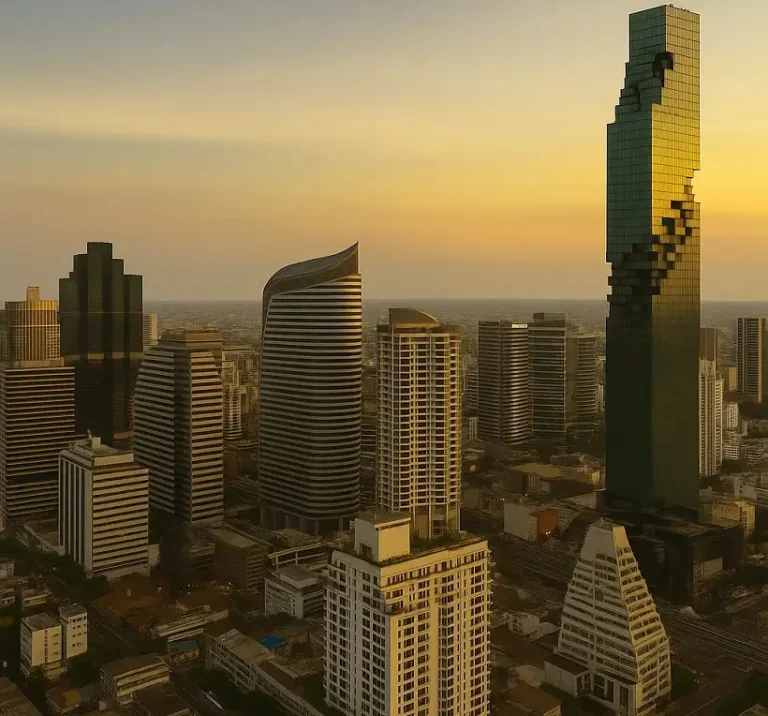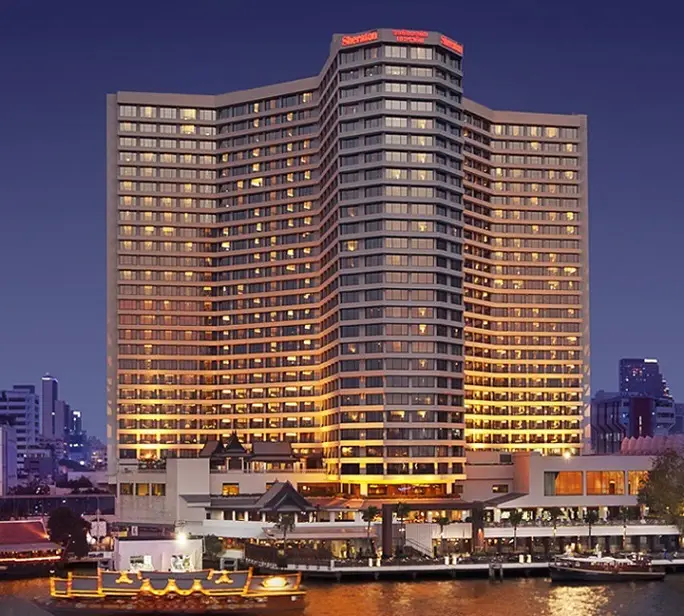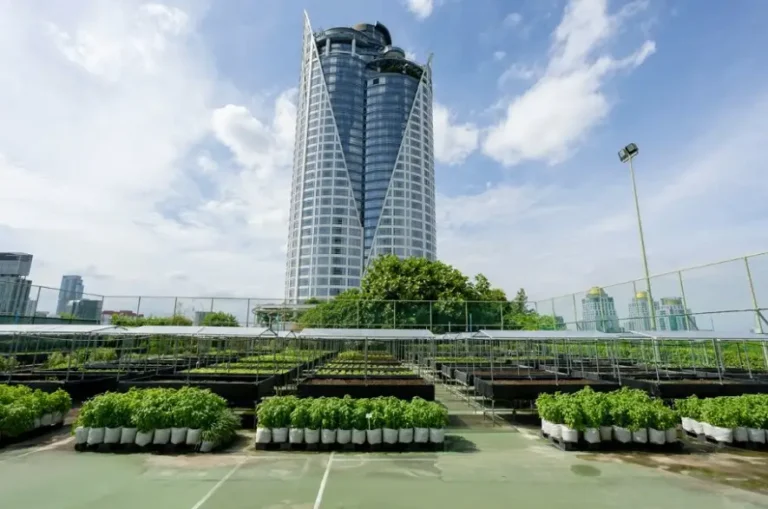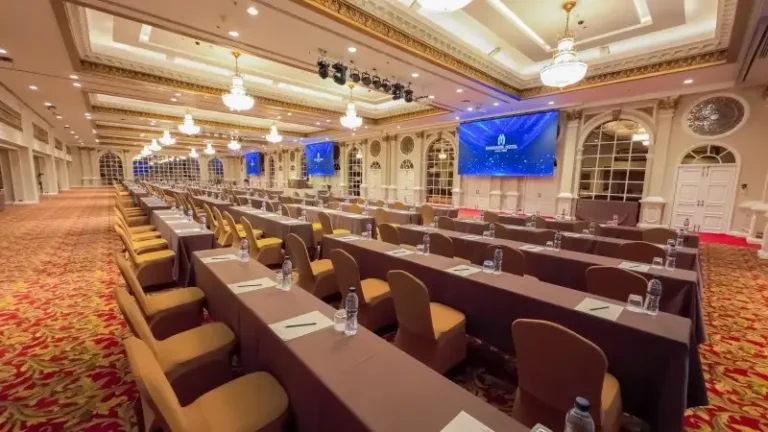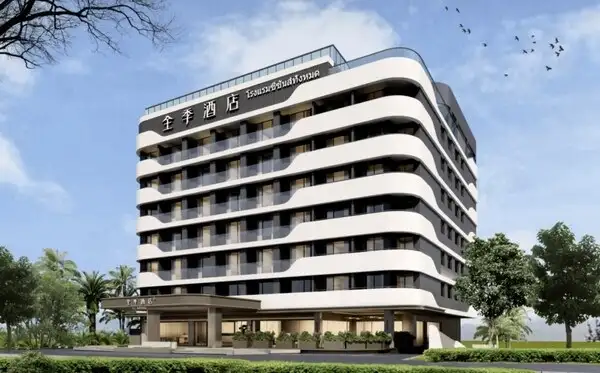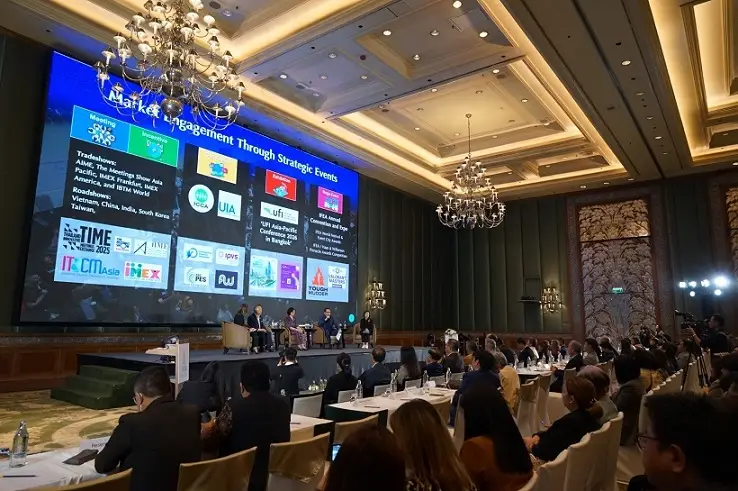
Bangkok Hotel News: Resilience at the Heart of the Capital
In a world riddled with uncertainty — from natural disasters to escalating trade tensions and armed conflicts — Bangkok’s hotel and MICE (Meetings, Incentives, Conferences, and Exhibitions) sectors have not just survived, they’ve roared back to life. Despite facing the immediate threat of a powerful earthquake in neighboring Myanmar, coupled with the looming shadow of global economic strain and geopolitical instability, Thailand’s capital remains a stronghold of hospitality, business, and adaptability.

Image Credit: TCEB
On March 28, 2025, a 7.7-magnitude earthquake shook central Myanmar, sending tremors across much of Thailand. While viral videos of sloshing rooftop pools and the partial collapse of a government building in Bangkok sparked initial fear, the reality is that Bangkok’s infrastructure weathered the shock with minimal damage. This Bangkok Hotel News report can confirm that high-rises, transportation systems, and commercial buildings were inspected rapidly by both government and third-party engineers. The Bangkok Metropolitan Administration declared the majority of buildings, including hotels and event venues, as structurally sound and within “green” safety zones.
Hotels Respond with Precision and Care
Hotels across the capital immediately activated emergency protocols and conducted thorough inspections. Industry operators were quick to reassure guests and stakeholders. Hyatt Regency Bangkok Sukhumvit, for example, reported minor surface cracks but no damage to critical infrastructure or systems. Operations resumed within hours of the quake, reflecting the sector’s efficiency and preparedness.
Likewise, BWH Hotels and other global chains with multiple properties in Thailand confirmed that all locations were fully operational. Safety checks were completed swiftly, and certifications from local authorities are being secured to reassure incoming international guests. Other prestigious properties, including The Athenee Hotel, reaffirmed their commitment to guest safety, with emergency procedures ready to activate at any time.
Despite the terrifying nature of the quake, industry leaders emphasized that Bangkok’s building codes — developed with seismic threats in mind — played a major role in preventing catastrophe. Many of the city’s prominent hotels and venues were constructed under strict safety regulations, contributing to the limited structural impact.
MICE Industry Remains Unshaken
The MICE sector, a cornerstone of Thailand’s economic strategy, also displayed remarkable fortitude. The Thailand Convention and Exhibition Bureau (TCEB) announced that key venues had passed inspection and that events would proceed as scheduled. No postponements or cancellations have been reported due to the quake.
TCEB officials have praised the rapid government response, stating that international confidence in Bangkok’s capabilities remains high. They reiterated that Bangkok is not only open for business but has proven its readiness to host world-class events safely and reliably. This confidence is further reinforced by robust contingency plans, upgraded venue infrastructure, and continued collaboration with international stakeholders.
Tariffs and Trade Tensions Add Pressure
While the physical damage was minimal, Thailand’s broader economic environment faces a more persistent set of threats. The recent announcement of sweeping tariffs by the U.S. government — including a 36% duty on certain Thai exports — has triggered concerns among business leaders. A number of industry groups have downgraded Thailand’s GDP growth projections for the year as a result.
These trade policies particularly affect sectors like electronics, automotive parts, and agriculture, many of which are closely tied to business tourism and MICE activities such as trade expos and sectoral conferences. In response, the TCEB and other economic bodies are working to pivot towards new markets and emerging industries less impacted by U.S.-centric trade fluctuations.
By diversifying its outreach and emphasizing high-value, sustainable event offerings, Bangkok aims to cushion the blow from global trade disruptions and maintain its place on the global stage as a preferred MICE destination.
Wars and Instability Reshape Travel Behavior
Compounding the challenge is the ongoing geopolitical instability across regions like conflicts between India and Pakistan, Pakistan and Afghanistan, Eastern Europe and the Middle East. Wars and civil unrest continue to shape traveler sentiment, with a growing demand for destinations perceived as safe, stable, and professionally managed.
Bangkok has capitalized on this shift, positioning itself as a sanctuary for both leisure and business travelers. The city’s proven ability to handle crises, reinforced by its swift response to the Myanmar earthquake, has helped bolster its image internationally. With world-class healthcare, modern infrastructure, and a culture of hospitality, Bangkok is being seen as a “reliable escape” in unstable times.
Humanitarian Support Across Borders
While Thailand has returned to normal, Myanmar continues to suffer. The earthquake left thousands homeless, devastated rural infrastructure, and caused a death toll that has exceeded 2,000. Civil unrest in the country has further delayed aid efforts, leaving many communities in desperate need of assistance.
Bangkok’s travel and hospitality communities have stepped up. Several destination management companies (DMCs), hotels, and tour operators are organizing donation drives and funneling support through trusted humanitarian partners operating on the ground. The city’s response reflects a broader regional responsibility — showcasing Bangkok not only as a commercial hub but as a compassionate leader in Southeast Asia.
A City That Never Slows Down
Despite the earthquake, tariffs, and international tensions, Bangkok remains unwavering. Its hotel and MICE sectors have emerged stronger, more organized, and more determined than ever. From high-rises that held firm, to international summits that stayed on schedule, to frontline hotel workers who reassured guests with calm professionalism — Bangkok has demonstrated it is not just resilient, but unbreakable.
Looking ahead, the city continues to evolve. With sustainability, safety, and adaptability as core pillars, Bangkok is ready to face the challenges of a shifting global landscape. It invites travelers from around the world not just to visit, but to engage — through business, culture, events, and human connection.
For the latest on the Hotel and Mice markets in Bangkok, keep on logging to Bangkok Hotel News.

